Dare to speak Mongolian, huh?
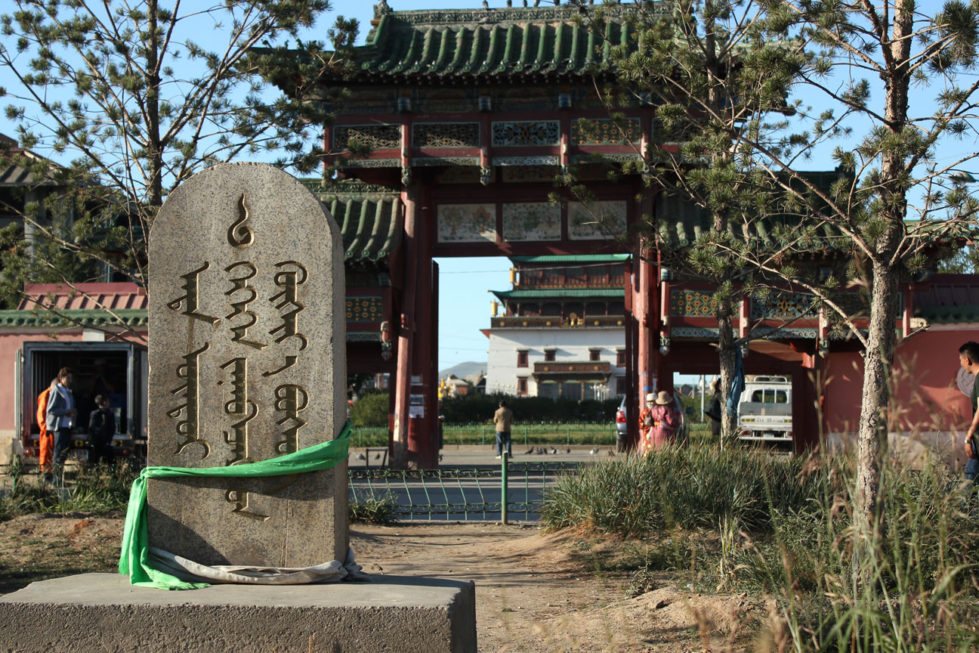
If I had known all the languages in the world, I would use English in business, Spanish to comment on football, French for intimate whispers, Arabian for haggling, German to give orders, Polish because of perversity and Mongolian… for poetic portraiture of boiling water process.
What is it like?
It’s a language for real connoisseurs. For average Western mortal spoken Mongolian sounds like random set of deep guttural sounds. Any similarities with better known languages? Nope. People smarter than me say, that Mongolian closest linguistic relatives are Korean and Turkish. In practice, I bet, that neither Korean, nor Turkish would be able to order a beer in Mongolia speaking their mother tongue.
For you it means, that you won’t understand a single word from what Mongolians say. Tim Severin, a British traveler, once described Mongolian language as:
Two cats spitting and coughing at each other until one throws up.
How about reading Mongolian?
Up till 1930 I would give you no chances to understand written Mongolian. Till that time Mongolians used to write texts from top to bottom. They used characters borrowed from Uighur, the rebellious minority living in north-western part of China.
XX century brought revolution — traditional script has been replaced with Latin characters. The government passed the law, but people… let’s say they were more skeptic to that idea. As a result after two years Mongolians changed their mind and returned to old-fashioned script.
So how come they use Cyrillic?
After 1945 Mongolian government, that had strong ties with USSR decided to adapt Cyrillic. Mongolians use this alphabet till now, even though after Soviet Union fall there were several attempts to return to traditional script.
Throat singing is Mongolian national sport. It resembles yodeling, the same way as Alpine marmot resembles bactrian camel.
Foreign languages in Mongolia
You don’t need to be an expert in Mongolian culture and history to guess, that privet sounds more familiar to people there, than good morning. From XX century onwards Mongolians lived under strong Russian influence. That’s why many elder people knows Russian language from the school and to some extent they can communicate in this language. Younger generations learn English as well as Russian. Especially in Ulaanbaatar people can positively surprise, guiding you in foreign language with ease. But first you need to find the right people :)
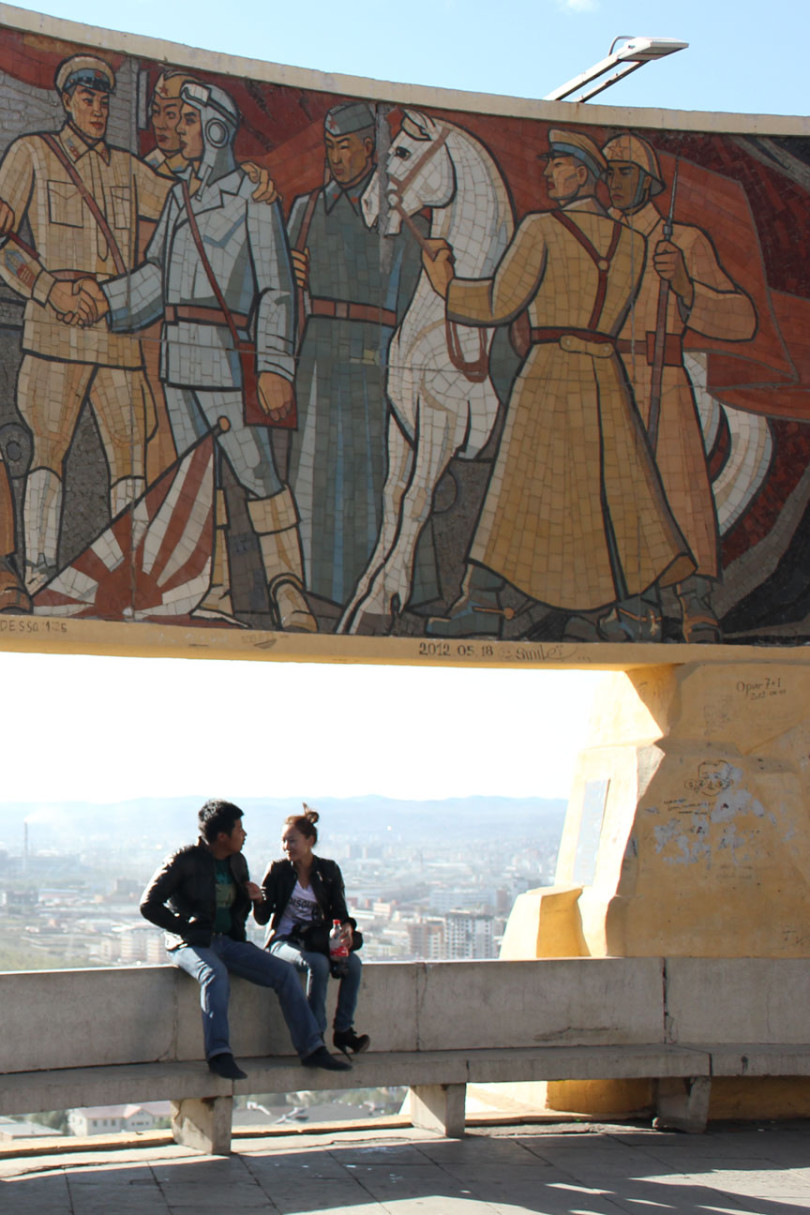
Bible pauperum saying how Soviet and Mongolian soldiers arm in arm defeated fascist Japanese and built communistic heaven on Earth. They started from language and on words finished.
English-Mongolian phrasebook
So you wanna join the elite of 6 million Mongolian language users (more than half lives in Inner Mongolia, that is a Chinese province)? OK, here is lesson one — survival set for you. Order not accidental.
- Hello!
- Sain baina uu / Сайн байна уу
- How much does it cost?
- Ene ni kher ünetei ve? / Энэ нь хэр үнэтэй вэ?
- Sorry
- Uuchlaarai / Уучлаарай
- I don’t understand
- Bi oilgokhgüi baina / Би ойлгохгүй байна
- Write this down please
- Ene uu bich / Энэ уу бич
- Goodbye!
- bayartai / баяртай
- Stop please
- Kherev zogsookh / Хэрэв зогсоох
- What’s your name?
- Tany ner baina / Таны нэр байна
- My name is…
- Minii ner [name] baina / Миний нэр [name] байна
- Enjoy your meal
- Tany khool durtai / Таны хоол дуртай
- Thank you
- Ta bükhend bayarlalaa / Та бүхэнд баярлалаа
- You’re welcome
- Zügeer ee / Зүгээр ээ
- Cheers!
- Tölöö! / Төлөө!
- I love you
- Bi chamd khairtai / Би чамд хайртай
That should be enough for the first date (with Mongolian language). In case you have already fallen in love, check out more phrases.
Any luck learning Mongolian?
Share your story in comment. Have you been to Mongolia? How did you deal with language barrier? Or maybe you studied Mongolian language? Don’t forget to leave some tips for fellow travelers!
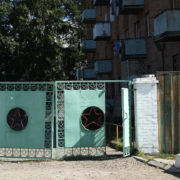
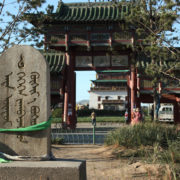
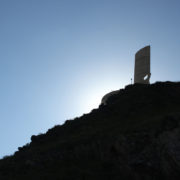
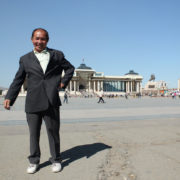
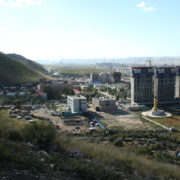
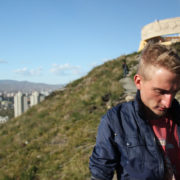
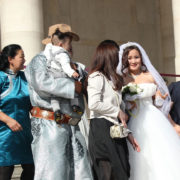
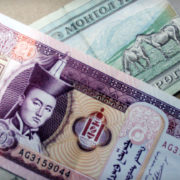
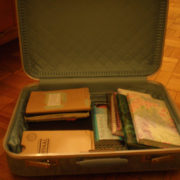
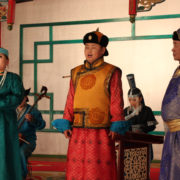
Leave a Reply